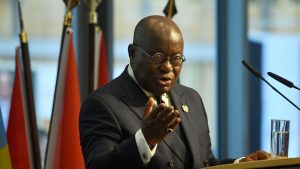The Economic and Organized Crime Office (EOCO) has come under fire from the Office of the Special Prosecutor (OSP) for allegedly showing little interest in looking into the allegations of money laundering made against Cecilia Dapaah, the former minister of sanitation.
In a media interview on Monday at the 14th Commonwealth Regional Conference of Heads of Anti-corruption Agencies in Africa, Maame Yaa Tiwa Addo-Danquah, the Executive Director of EOCO, revealed that efforts were being made to return the docket to the OSP. The OSP had forwarded its docket on the former minister to EOCO for further action.
Madam Addo-Danquah asserts that her outfit was powerless because anything they “would have done had already been directed at the police CID.”
According to Samuel Appiah Darko, Director of Strategy, Research, and Communications at the Office of the Special Prosecutor (OSP), EOCO is just not motivated to look into and bring charges against the former minister of sanitation.
“The second point I want to make is this whole idea that the docket that the OSP sent to EOCO was baseless and if you will indulge me, I am going to be a bit detailed, although we are not supposed to do this but our point is that if there is no appetite to want to investigate and prosecute, tell the people of Ghana that there is no appetite but don’t try to put the blame on the OSP,” Mr Darko told the host of the Citi Breakfast Show, Bernard Avle, on Citi FM.
Furthermore, he denied rumors that the former minister had been cleared by the OSP.
“The AG saying that we had cleared Cecilia Dapaah of any offence is also not accurate because the OSP has never cleared Cecilia Dapaah because when you say you have cleared someone, it means that you have investigated and come to the conclusion that no offence has been committed.”







